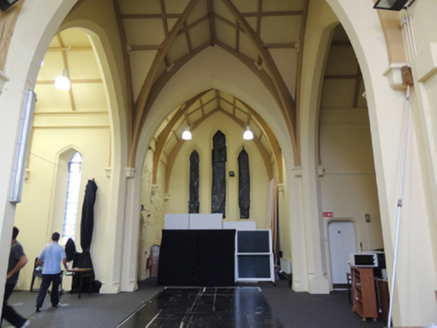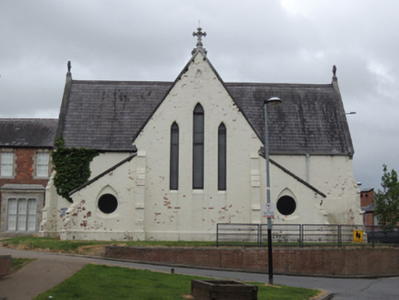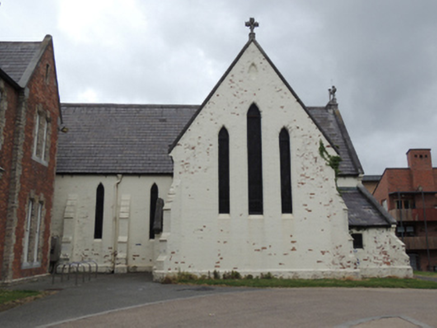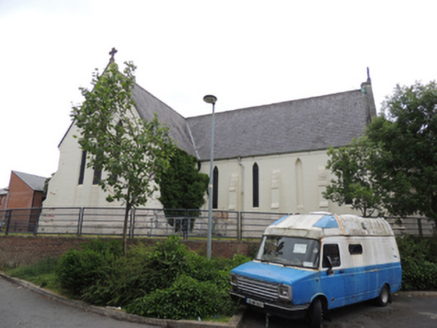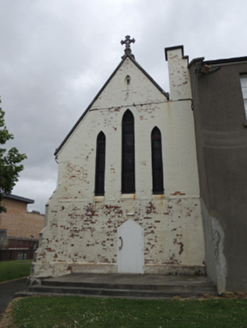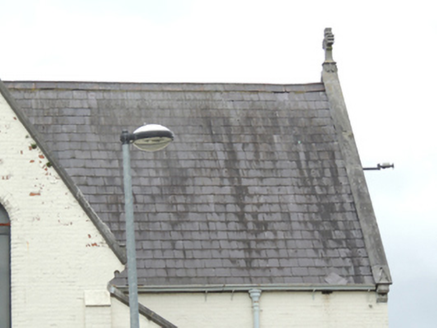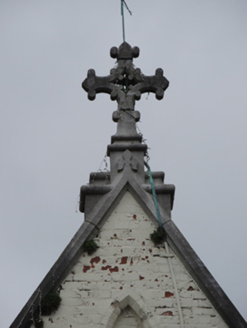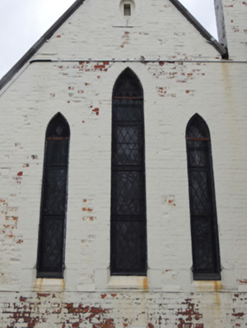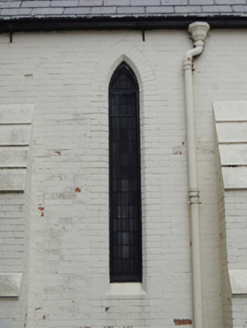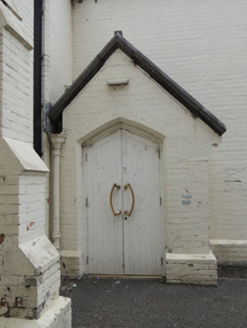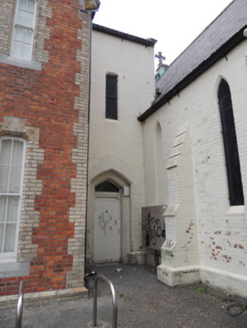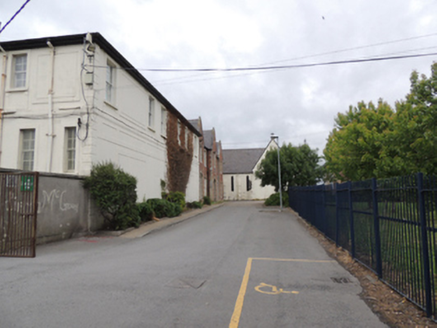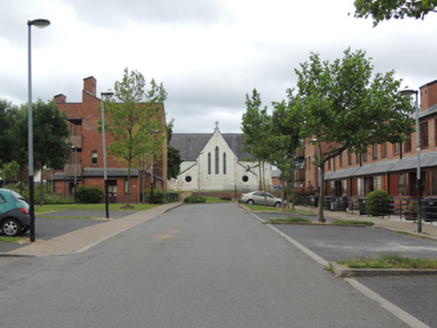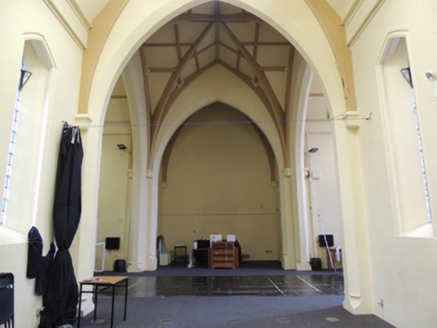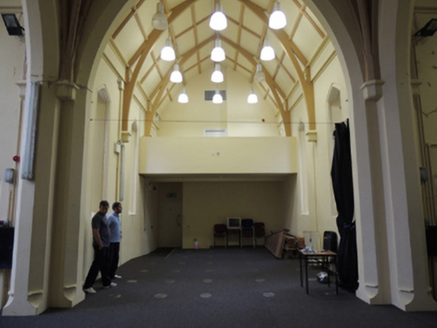Survey Data
Reg No
50080397
Rating
Regional
Categories of Special Interest
Architectural, Artistic, Historical, Social
Previous Name
Saint Vincent's Convent
Original Use
Church/chapel
In Use As
Building misc
Date
1855 - 1865
Coordinates
311941, 233149
Date Recorded
14/06/2013
Date Updated
--/--/--
Description
Attached cruciform-plan Roman Catholic church, built c.1860, having four-bay nave, full-height chancel and transepts, sacristies to north-east and south-east re-entrant corners of transept with lean-to slate roofs, and gabled porches to north-west and south-west re-entrant corners of transepts. Now in use as educational building. Pitched slate roofs with cut granite copings having carved granite cross finials, and cast-iron rainwater goods. Painted red brick walls laid in Flemish bond, with chamfered plinth course. Stepped buttresses with chamfered granite coping, angled to corners. Pointed arch lancet windows, arranged in threes to gables, having red brick voussoirs, carved granite keystones, chamfered granite sills, and leaded stained glass windows. Circular windows to sacristies, set in pointed arch recesses, now blocked. Tudor arch door openings to porches, having double-leaf timber battened doors. Two-storey bay to south-west corner, linking to convent, having pitched slate roof, painted red brick walls, and recessed Tudor arch door surround, with chamfered reveals, shouldered door opening with timber battened door, and plain overlight. Interior having cruck roof with exposed roof timbers supported on painted masonry corbels. Groin vaulting to crossing. Plastered walls with chamfered pointed arches to crossing. Gallery to west end. Shouldered square-headed door openings to sacristy rooms to chancel, timber battened doors. Recent subdivisions and alteration. Former convent buildings attached to south-west corner.
Appraisal
This former Roman Catholic church forms part of a complex of religious and industrial buildings associated with the former Saint Vincent’s Industrial School. In 1855 Cardinal Cullen requested the Sisters of Mercy to provide a rehabilitation service to women who had been incarcerated in Mountjoy Jail. Cardinal Cullen rented a premises at Goldenbridge and by 1858 the Sisters of Mercy had established a convent, national school for the poor of the area and a commercial laundry, as well as the rehabilitation service for the former prisoners. The Griffith’s Valuation map of c.1860 shows a Roman Catholic chapel on the site, while the convent buildings were constructed to the south later in the century. The church is of architectural interest, and though the interior has been altered, the building retains much of its early form and materials. The church may have been designed by John Bourke (d.1871), who carried out designs from 1858 for the Saint Vincent de Paul Reformatory at Goldenbridge. Bourke designed many commissions for the Catholic Church throughout his career, and it was as a designer of churches, convents and related schools and institutions that he made his reputation. The building is of historical and social significance as part of the Goldenbridge Convent and Industrial School complex.
